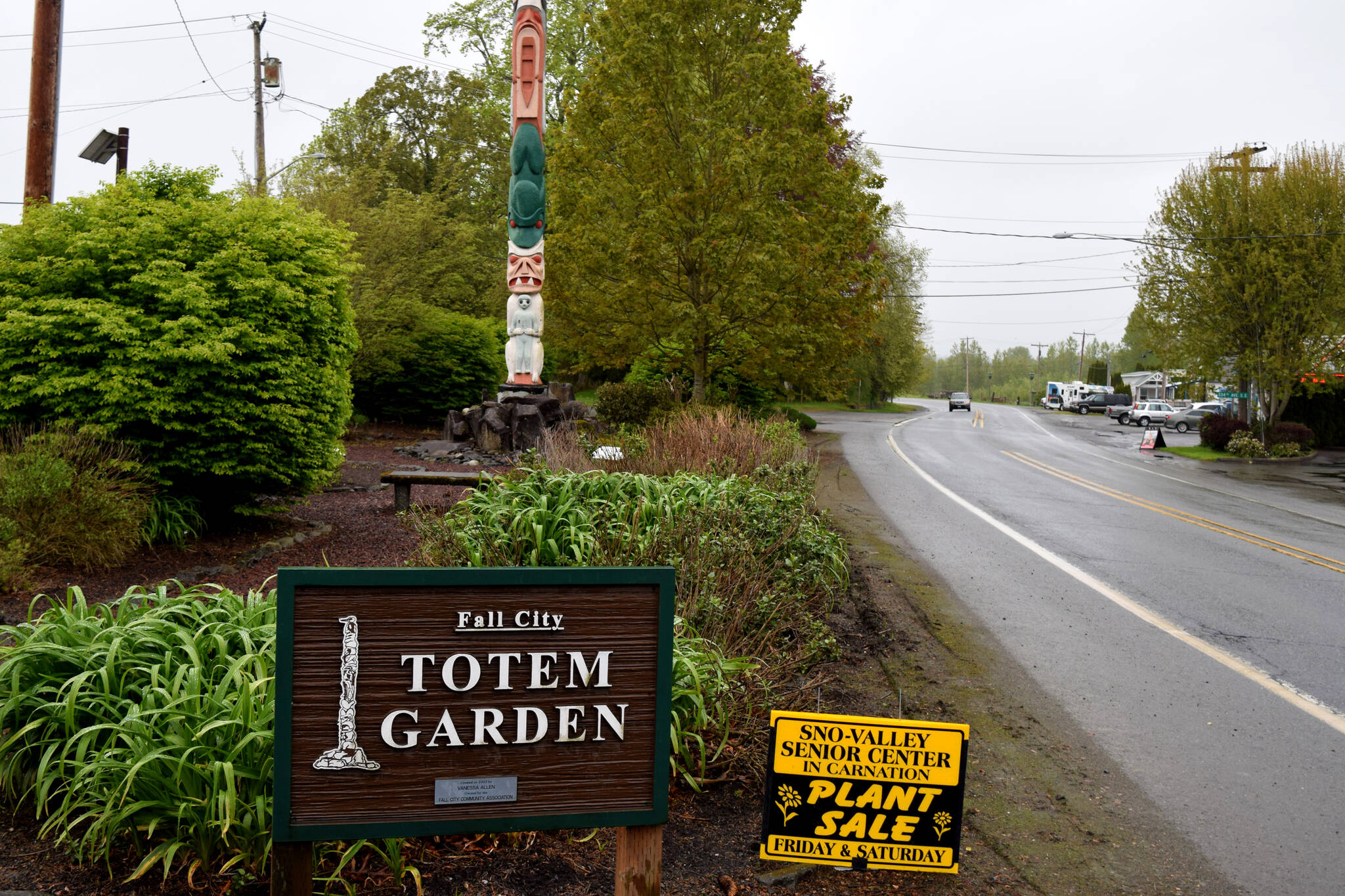During a July 6 Fall City Community Association meeting, members voted overwhelmingly to donate the totem pole in the downtown Totem Garden to the historical Baxter Barn site.
The totem pole was long considered an iconic landmark in Fall City. The association decided to explore options to either restore, repurpose or donate the wood art because the totem was in need of restoration — and because the origins of the pole were once again scrutinized amid accusations of cultural appropriation.
The piece was originally carved by a non-Indigenous settler named Hugh H. Hinds, who erected the 43-foot-tall totem pole — inspired by the art of the Haida Tribe — in 1934 in dedication to Julia Harshman, a town benefactor who had died a year earlier.
Harshman came to Fall City in 1903 and is most notable for starting the first telephone company in the Snoqualmie Valley that ran from Fall City to Tolt (now Carnation).
Recently, residents have become increasingly aware of why the pole is problematic and a misrepresentation of the Snoqualmie Tribe, whose ancestral lands are where the pole sits.
Totem poles are an art style that was never practiced by indigenous tribes in Washington state, according to an archaeologist for the Snoqualmie Tribe. Pole carving is a practice that was traditionally performed by tribes in coastal Southern Alaska and British Columbia.
As mentioned by Fall City Community Association member Pete Nelson, this particular piece was inspired by art from the Haida Tribe, one that was known to kidnap and make slaves of tribes such as Snoqualmie. Nelson said his understanding from learning about the issue is that totem poles tend to bring up “really ugly history” for the tribe.
“There is so much we still have to learn,” said FCCA President Angela Donaldson.
Options to repurpose the pole into benches or a planter for native plants, for example, were considered along with where the pole could potentially be donated.
Fall City Cemetery was considered, but the cemetery contains a section for Snoqualmie Tribe members.
A donation to the library was considered before King County Councilmember Sarah Perry shot the idea down, saying that the King County Library Association and the county would be reluctant to endorse a symbol that is recognized as being appropriated and possibly offensive to local tribes.
Managers of Baxter Barn — already a historical site at 31929 SE 44th St. — had agreed to accept a donation of the Fall City pole and members of the FCCA voted for the motion to do so with no opposition.
The FCCA agreed to get a quote for the cost of moving the pole to Baxter Barn and would vote to include the cost in their September budget discussions.
Donaldson reiterated the Snoqualmie Tribe’s statement regarding the pole and their desire for the story of Hugh H. Hinds’ pole and his gift Julia Harshman in an appropriate way that does not misrepresent their own culture.


